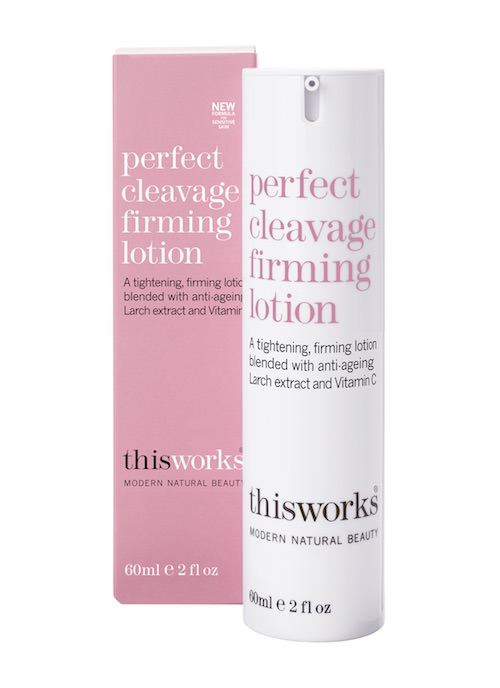Breast is best… but what about when it’s not?
I’m a proud mum of three loving, energetic and exhausting boys, each one the perfect picture of health. My first pregnancy took place over a decade ago now, and just as mums-to-be are today, I was exposed to the familiar Breast Is Best campaign.
Launched by public health minister Tessa Jowell as part of Unicef's UK ‘Baby Friendly’ Initiative back in May 1999, this campaign had the specific – and worthy – aim of encouraging more mothers to breastfeed their babies.
Alongside my new pregnant buddies, I attended antenatal classes including a private evening hosted by a ‘lactation consultant’, which essentially taught us all about the many benefits of breastfeeding as well as taking us through the complications of positioning, latching on, the importance of swapping breasts for each feed and so on. Approaching the birth, I wasn’t overly nervous about nursing – they’d made it seem so natural, after all – although I can’t say I was actively looking forward to it. The prospect of having my nipple sucked by a tiny little mouth made me feel, to be perfectly honest, just a little bit squeamish!
All the same, after my baby was born I threw myself into the task: eating all the right foods, applying all the right creams and feeding on demand. Although it’s unquestionably a miracle that one human body can nourish another, I didn’t find it an emotional revelation, and to be frank, it hurt. Those first few sucks of each feed sent stabbing pains through my breast until the milk started flowing freely – not something I enjoyed.
And then it all went wrong.
Two weeks in, I developed mastitis . My breasts suddenly became sore, hot, heavy, throbbing even, and I was unable to sleep with the pain. My GP prescribed a course of antibiotics, and as the pills were unsafe for my son to consume via my breast milk, that’s where my breastfeeding journey concluded.
Of course, I had the option of expressing my drug-infused milk and throwing it away during my fortnight’s recovery period (just to keep the supply from drying up), but by then the physical pain of my infected breasts and nipples simply wouldn’t allow me to tolerate it, and my son was suffering health problems (not connected to breastfeeding) that demanded all of my strength. Formula feeding began and I put the whole unhappy period behind me.
Second and third time round, I had a feeling that it wasn’t going to work out. Just as I predicted, each time I gave birth, I got an infection (albeit in a different area) that required a course of antibiotics to clear it up. Exhausted and unwell, I again chose formula feeds, which had the added bonus of allowing my long-suffering husband to help out during the dreaded night shift.
So for me, breast was very clearly not best. I refused to feel an ounce of guilt despite the disapproving and pitying glances I received at clinics and mothers’ meet-ups. I’d tried, and it hadn’t worked out.
There is undoubtedly a stigma attached to not breastfeeding your baby, just as there is to enduring childbirth with the assistance of pain-relieving drugs. To this day my friends take a certain amount of pride saying they survived the experience just on gas and air. Should I feel guilty that I requested an epidural to help me through three labours including two ventouse and one forceps delivery? And likewise should I feel a failure for not being able to breastfeed my babies?
In this internet-driven day and age, new mothers and mothers-to-be are exposed to ever-increasing rules and regulations dictating what they should and shouldn’t do. In May 2013, NEJM Journal Watch published a report illustrating the shame and guilt that policies promoting breastfeeding can cause. Also this year, The Guardian published a thought-provoking article on the on-going debate that breastfeeding may have been ‘oversold’ due to ‘cultural obsession with eliminating risk’ and that the research into breastfeeding may be ‘methodologically flawed’. Joan B Wolf, professor of gender studies at Texas A&M University, was quoted suggesting women are subject to ‘an ideology of total motherhood that stipulates that a mother can and should eliminate any risk to her children, regardless of how small or likely the risk or what the cost is to her own wellbeing in the process.’
We all know that breastfeeding is undeniably the best and ideal solution, yet I think physicians, midwives, lactation specialists, nurses, health visitors – and yes, the general public – should all know when to step away from the campaigning and reassure a new mum that it is OK not to do the ‘natural’ thing. It’s hard enough picking your way through the minefield of motherhood without having to face the stern disapproval of the medical profession and our friends.
Breastfeeding is a personal choice. Let’s keep it that way.
by Bryony Sutherland
Latest Cream Review
Browse Categories
Most popular
Dr. Organic Moroccan Argan Oil Breast Firming Cream Review
Dr. Ceuticals Bust Boost Review
UK beaches uncovered: The topless top five
Palmer’s Cocoa Butter Bust Cream Review
The politics of breasts: Know your rights
Strapless, backless or plunging – bra solutions for every dress dilemma
Nutrition and lifestyle for breast cancer prevention


